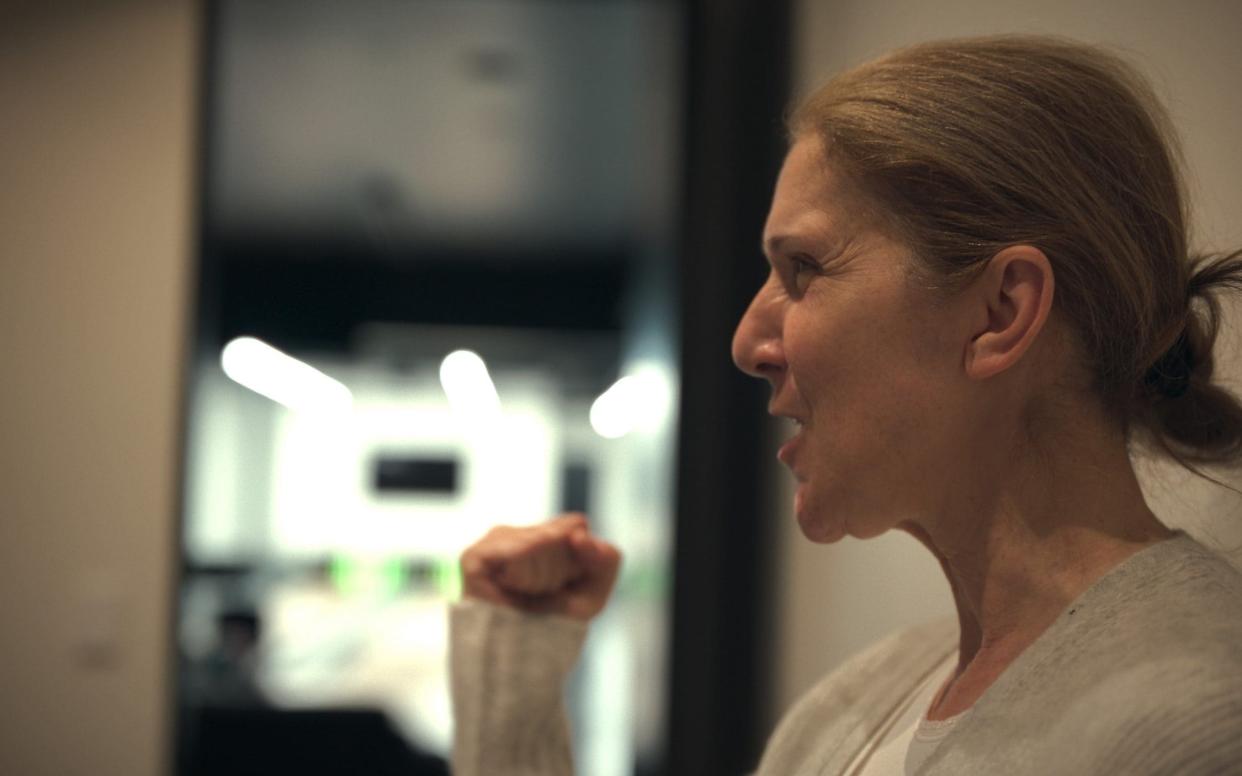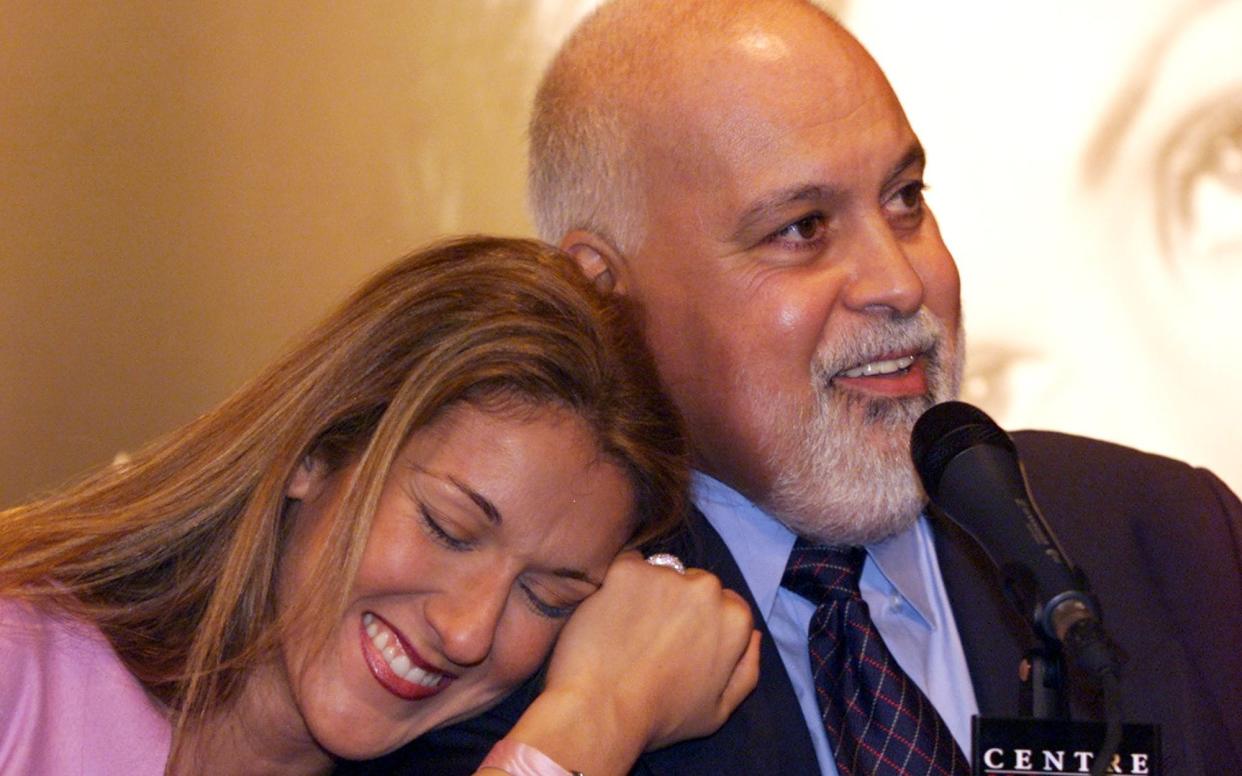I was one of many critics who looked down on Celine Dion – I was wrong

“I will miss music,” sobs Celine Dion in the Amazon Prime Video documentary I Am: Celine Dion, out tomorrow. Detailing the 56-year-old Canadian chanteuse’s agonising struggle with a rare neurological condition, Stiff Person Syndrome, it’s a film that has left many critics in tears. And yet many of us disdained the bombastic sentimentality of Dion’s work in her 1990s pomp, when she spent what felt like years yodelling from the summit of the charts (in 25 countries) about her heart going on. And on! Annnnnnnd oooooooon!
I hold my hands up to being one of those critics. Decades ago I winced at the earnest striving of her mighty vocals, writing that she sounded like a woman “gargling ice cubes”, “over-emoting – like an ambitious back up cop – to draw fire from the lack of melodic originality and lyrical subtlety”.
While younger readers may be appalled by me (a female critic) urging a female artist to “put a lid on it, sis”, I want to remind them that the 1990s was the Age of Irony. Those of us who came of age in that decade were shrugging off the neon enthusiasm of 80s pop.
We believed in the authenticity and wit of indie bands like Blur and still loved pop stars like Madonna because they were all winking at the camera, inviting us to share in jokes. Raw and humourless music like Dion’s was hugely out of style with hipsters. We were as keen to wear our cleverness and subtlety on our sleeves as Dion was to let her heart come splattering, bloody, onto hers.
Looking back, I think that as one of the few female pop rock critics (last year I was the only female broadsheet critic sent to review Madonna’s Celebration tour in London) I felt more pressure than my peers to turn my back to Dion’s OTT balladry for fear of losing my own credibility.
It took a book written by a man to make me reassess my dismissal of Dion’s talent. Music critic Carl Wilson’s Let’s Talk About Love: Why Other People Have Such Bad Taste (2014) completely changed the way I listened to music. Wilson began from a standpoint of loathing Dion. Her music struck him as “a bland monotony raised to a pitch of obnoxious bombast… RnB with the sex and slyness surgically removed.” Wilson believed he’d never even met a person who liked Celine Dion. And yet the woman was at Number One all over the globe.
What he – a white, middle-class, highly educated man – came to learn was that Dion’s music resonated most with people who lacked all of his social advantages. According to one study, her fans tend to be older women living in middle America and three-and-a-half times more likely to be widows than the average music fan. Dion’s yearning, despairing choruses also hit home with those suffering from domestic violence, prison inmates and women/ gay men living in communities in which they felt alienated.

It’s why now, when I write about Adele – perhaps Dion’s modern equivalent – I try to put my own situation aside and imagine the person who gets little time for music, driving home from a late shift at a dead-end job, feeling their heart swell along with her ballads.
These are the listeners who might know about Dion’s personal tragedies. Dion, born in 1968, was named after the 1966 hit Celine by French singer Hugues Aufray. She grew up the youngest of 14 children in the town of Charlemagne in Quebec, Canada, and described her Francophone, Roman Catholic family as “poor but happy”. She survived being hit by a car aged five; sang in public for the first time at her brother’s wedding aged six; was discovered by her future husband (the late René Angélil) at the age of 12. Dion’s brother had sent the 38-year-old promoter a tape of her singing a song they wrote together (Ce n’était qu’un rêve) and Angelil said it made him cry. Angélil mortgaged his house to fund Dion’s debut album – La voix du bon Dieu (1981) – on which she does sound precocious.

Through the vaseline on the mic production there’s a sweetness and innocence in her tone, but also a stubborn tenacity in the way she clings to the big notes. Although there’s an uneasy Emmanuel-style soft porn in the sound, there’s also the strong sense of a young woman who wants life on her own terms. I don’t envy Dion’s mother, who tried to talk her daughter out of marrying a man over 20 years her senior.
In Dion’s 2000 autobiography, My Story, My Dream, she wrote that, after the 1985 dissolution of Angélil’s second marriage, she kept a photo of him under her pillow writing: “I was in love with a man I couldn’t love, who didn’t want me to love him, who didn’t want to love me.” The young singer’s infatuation finally found validation when he kissed her after she won the Eurovision song contest (for Switzerland) in 1988. Her mum pushed back but Dion, then 20, held her ground. She said: “I’m not a minor. This is a free country. No one has the right to prevent me from loving whoever I want to.”
Angélil died in 2016 after rape allegations (from other women) were quashed and his accusers were convicted of extortion. The couple appear to have enjoyed a happy marriage. They have three children, the last two conceived after a traumatic miscarriage and many rounds of IVF. I still find it odd that Dion describes her career as her husband’s “masterpiece” – but maybe she knows best. In recent years, the singer has endured the loss of her father, her brother and her 16-year-old niece, who died in her arms of cystic fibrosis.

I thought of that moment the other day when her single It’s All Coming Back to Me Now popped up on the radio. The track – produced by longtime Meatloaf collaborator Jim Steinman – includes the lines “When you touch me like this/ And you hold me like that…”
For the first time a Dion ballad sent the tears flooding down my cheeks. And I realised that the thing about her going on (and on and on) is that you do too. I couldn’t stop. I’ve got a friend with a critically ill child, and Dion was insistent that I didn’t push those feelings to one side. They all had to come out. So for three solid minutes, my feelings came out of my eyes and my nose and I made weird cow noises I haven’t made since I was in labour. “So that’s when she gets you,” I thought. “When you’ve got nothing left.”
I Am: Celine Dion is streaming on Amazon Prime Video from tomorrow


